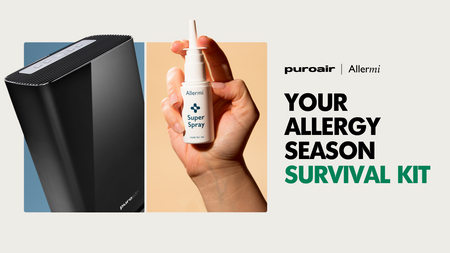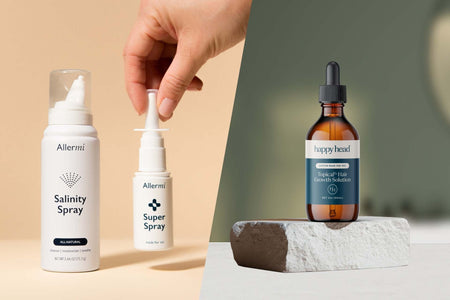Nasal septal perforation (NSP) from nasal spray use is extremely rare and typically occurs only when multiple, significant risk factors are present—such as prior nasal trauma or surgery, improper spray technique, severe untreated inflammation, or a history of intranasal recreational drug use (such as cocaine). As a precaution, Allermi does not treat patients with a history of intranasal recreational drug use for this reason.
What actually causes septal perforations?
Most NSPs are not caused by therapeutic nasal sprays. Instead, they are usually linked to:
-Prior nasal trauma or surgery (e.g., septoplasty)
-Repeatedly “picking” or manipulating the nose
-Chronic infections
-Industrial exposures (especially in metal-related fields)
-Autoimmune conditions
-Congenital or acquired structural abnormalities
-Intranasal substance use, such as cocaine
In fact, many NSPs are subclinical—meaning they cause no symptoms and are discovered incidentally during exams for other reasons.
Historically, certain older nasal sprays (such as some early corticosteroids from the 1980s) were more irritating and delivered in high-velocity aerosolized forms that could cause injury to the septum. These sprays are no longer on the market.
What about Allermi?
Allermi’s formula and delivery method are carefully designed to minimize irritation and risk:
-Our sprays are alcohol-free and water-based, with active ingredients micro-dosed to reduce irritation.
-The spray is delivered as a gentle, wide mist, not a forceful stream.
When used as directed, the likelihood of developing a septal perforation from Allermi is extremely low.
Proper spray technique matters.
To ensure safety:
-Shake the bottle before use.
-Insert the nozzle as deep as comfortable into the nostril while pointing it slightly outward, away from the septum (toward the outer corner of the eye).
-Do not angle the spray inward toward the center of the nose.
This method helps avoid contact with the nasal septum and delivers the medication safely and effectively.
It is also important to note that just because someone is using a nasal spray doesn’t mean it caused a nasal septal perforation (NSP). Because NSPs are often found incidentally and have many possible causes, discovering one in a person using Allermi does not automatically mean Allermi caused it—unless the person has been spraying directly at the septum repeatedly over time against our clear usage instructions.
If you’ve had sinus surgery in the past, it’s especially important to note that surgery may make the midline septum more sensitive and fragile. It is more likely to become irritated and prone to bleeding, particularly with manipulation or trauma. Extra care should be taken to avoid direct contact with the septum when using nasal sprays, saline rinses, or ointments. Always insert the nozzle as deep as comfortable and angle it away from the septum, straight towards the outer eye.
What to do if you're concerned:
If a septal perforation is suspected, stop using the spray immediately, message your Allermi Care Team and consult an ENT (ear, nose, and throat specialist). If you have a history of septal perforation in the past, you should be cleared by your ENT before using any nasal spray, including Allermi.








